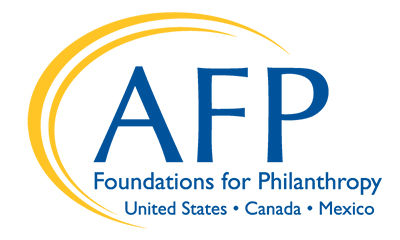There are certain moments in time that you have to decide who you are, whether that’s in your career, in your relationships, or your values. For Shiza Shahid, that moment came a year into her so-called five-year plan at McKinsey & Company when she received a text message that Malala Yousafzai had been shot.
“Someone needed to take this moment,” she said, as global outrage erupted over the shooting of a young girl because she wanted go to school.
There are certain moments where you have to decide who you are. “In those moments, be bold, your heart already knows what’s best for you,” said Shahid, who left McKinsey to become founding CEO of The Malala Fund.
That was just one of the stories Shahid shared during the opening general session of the Association of Fundraising Professionals (AFP) International Fundraising Conference at the Moscone Center in San Francisco, Calif. The 54th annual conference kicked off on Sunday with some 4,000 registrants who will attend educational sessions and seminars through Tuesday.
In remarks that lasted about 30 minutes, Shahid shared personal stories from her own life that helped guide her to a role in working toward global issues before spending a few minutes taking questions. “Your roles are difficult and often thankless,” Shahid told attendees. “You make sure that the best organizations in the world have the resources they need to help those most in need,” she said.
Shahid urged fundraisers to recommit to live their lives “with extreme passion and unshakable commitment to positive impact.”
Shahid grew up in Pakistan, and later attended Stanford University on a full scholarship. She credits her parents with creating a loving home but knew that “things around me were not as rosy,” stressing the importance of growth and self-discovery. “Interactions in my youth were the beginning of a life of curiosity and impact that shaped who I became,” she said. “I would not have if I hadn’t looked past the life that I was born into. Be curious, expand your horizons and expand beyond the life and conversations.”
Shahid recalled “naively Googling” the top 10 colleges in the United States as an example of another life lesson: “Know that you have the power to change that which you cannot accept, in your life or the world around you.” She not only applied to Stanford University but also sought a full scholarship because her family could not afford to pay tuition. At age 18, she moved to California to attend college, surrounded by entrepreneurs but also those who had not seen poverty as closely as she did, aiming to solve problems around them that they understand, like developing apps to do your laundry or find a girlfriend.
“I was responsible to bring change that I wanted to see. Never doubt your ability to achieve anything, to overcome anything,” Shahid said.
After a whirlwind two years that started with Malala sharing the 2014 Nobel Peace Prize, two best-selling books and documentary film nearing release, “we had challenged the notion that girls were just victims,” she said, breaking stereotypes of what a powerful woman looks like. Yet, it was clear to Shahid that so much more work had to be done.
She had to get out and innovate again, “find the other Malalas,” those who had big ideas to change the world. She started AngelList, a fund that invests in mission-driven startups. Her goal is to challenge not just nonprofits to do good but businesses to change the way they function. “Mission-driven start-ups we invest in can become better businesses in the long-term,” she said.
Shahid reminded fundraisers that their work is transformative. “You can’t imagine to begin the ripple effects.”











